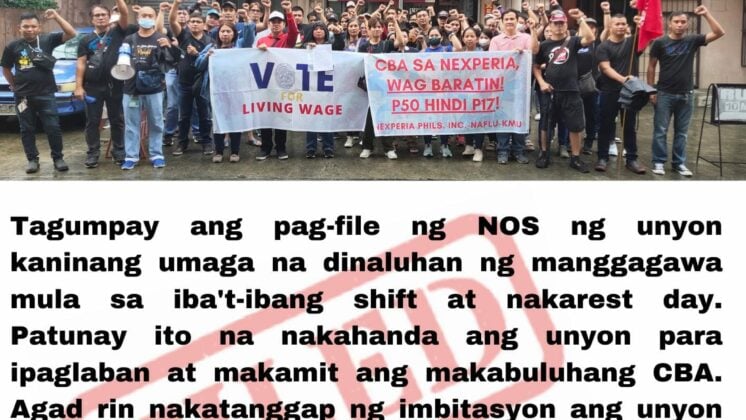Foxconn and Apple are failing to live up to their promises to reduce the working hours at Foxconn factories in China to the legal maximum without workers suffering a loss in income. Those commitments were made over one year ago after a Fair Labor Association (FLA) investigation of three Foxconn factories identified serious hours of work violations. In a media release issued today, the GoodElectronics Network expresses its concerns about the slow progress being made by Apple and Foxconn towards achieving respect for workers’ rights.
Foxconn
and Apple are failing to live up to their promises to reduce the working hours
at Foxconn factories in China to the legal maximum without workers suffering a
loss in income. Those commitments were made over one year ago after a Fair
Labor Association (FLA) investigation of three Foxconn factories identified
serious hours of work violations. The GoodElectronics Network is
concerned about the slow progress being made by Apple and Foxconn towards
achieving respect for workers’ rights.
In 2012, Apple joined the FLA and commissioned it to investigate working conditions at three of its Foxconn supplier factories in China: Guanlan, Longhua and Chengdu. These three factories employ 178,000 workers. In total Foxconn employs some 1.1 million workers in China. Apple and Foxconn promised crucial reforms, including, but not limited to, increasing wages enough to offset reductions in working hours, providing back pay for uncompensated work time, plus bringing down working hours to the Chinese legal standard of 40 regular working hours + 9 hours overtime = 49 hours maximum per week by July 1, 2013. These promises are detailed in a FLA announcement of March 29, 2012. Also, a study was to be undertaken to determine the amount of compensation necessary to meet workers’ basic needs.
In the spring of 2013, it became apparent that Foxconn and Apple were significantly behind schedule in implementing these reforms. On May 17, Foxconn announced it would need more time to reduce overtime hours at its Chinese factories.[1] No valid reasons were given. The Second Foxconn Verification Status report of May 2013, prepared by FLA, did not report any progress regarding the wage promises.[2]
In its two verification reports published to date, the FLA measures the Foxconn factories’ progress in reducing overtime hours against an arbitrary and illegal threshold of 60 hours per week. This is not even consistent with the FLA’s own Code, which requires compliance with the country’s legal standard, which in China is 40 hours for the regular workweek and 36 hours maximum overtime per month. The FLA Code also says that overtime shall not be required on a regular basis.[3]
This problem is not limited to the three factories investigated by the FLA. Recent research at other Foxconn facilities reports working weeks of 80-100 hours. In September 2012, researchers from Hong Kong-based Students and Scholars Against Corporate Misbehaviour (SACOM) interviewed 60 workers employed at Foxconn’s iPhone-producing plant in Zhengzhou, Henan Province. Workers interviewed reported working unpaid and excessive over time and/or being offered compensation leave instead of legal overtime pay.[4]
In a May 1, 2013 report, a group of scholars and students from China and Hong Kong accused Foxconn of playing “word games” by attempting to hide overtime hours worked by labelling overtime pay as “reward payments” on workers’ pay slips.[5] According to SACOM, employer demands on Foxconn workers to work excessive overtime hour without providing adequate compensation is still a serious problem. SACOM is calling on Foxconn to make good on its promises to reduce overtime hours to the legal limit and to provide workers a living wage for a normal workweek that will enable them to sustain a reasonable quality of life for themselves and their families.[6]
In the same report, Foxconn’s slow progress towards increased representation of worker representatives on union committees is also criticized. SACOM urges Foxconn to hold genuinely democratic and transparent trade union elections on the basis of approved methods and procedures that withstand public scrutiny.
Is Apple
being two-faced on workers’ rights?
Background to media release
Apple claims that it joined Fair Labor Association (FLA) to improve factory conditions at its main supplier Foxconn. But, how committed is Apple really?
In May 2013, it became known that Apple is shifting part of its production from Foxconn to Pegatron, another Taiwanese electronics manufacturer with factories in China. Reportedly, Pegatron will become the primary assembler of a low-cost iPhone expected later this year. Apparently, Foxconn is not as attractive to Apple as it used to be. According to market analysts, Foxconn's cost advantages from scale have diminished as it works to bring about the reforms Apple requires. In return for Apple’s orders, Pegatron seems to be willing to accept thinner profits. Pegatron is not likely to have bargained with Apple for a sufficient profit margin to invest in better working conditions.[7]
Although some progress has been made at the three factories investigated by the FLA, this minimal progress has not been replicated throughout Apple’s supply chain, including at other Foxconn factories like Zhengzhou.
What do workers want?
In the international media, reports have appeared claiming that Foxconn workers would oppose reduction in overtime as ‘they want to make as much money as possible in a short time’. Workers are reported saying they might leave the factory if overtime is cut. These reports ignore the underlying issue, that workers are not receiving a living a living wage and are therefore compelled to work long hours of overtime in order to meet their basic needs.
What is GoodElectronics demanding?
In January, February and March 2012 respectively, the GoodElectronics Network issued statements, expressing concerns about the FLA gradualist approach to achieving respect for workers’ rights. So far these fears have proven to be justified. Main points of concern:
Democratically elected union representatives
Foxconn must allow workers to take part in elections to democratically select their own representatives in the workplace who can negotiate with management on the pay and conditions of the workforce. Such elections must be conducted by the workers without interference from management, and all management personnel must be prohibited from taking up union positions. In order for the elected worker representatives to be able to meet management on an equal footing to negotiate on pay and working conditions, they will need support in terms of skills and knowledge. Apple must therefore insist that union representatives be allowed to access training and capacity building that is independent of management.
Fair levels of pay and decent working conditions
Apple and Foxconn must immediately establish a schedule of negotiations which will lead to a collective agreement that covers all aspects of work including wages and working hours, overtime, health and safety, etc.
Balancing production demands with workers' rights
Foxconn must learn to work together with its employees, through their democratically elected representatives, to find solutions together that reconcile the demands of production with recognition of workers’ rights. This will mean giving employees access to information on wages, working hours, production schedules and financial information that enable worker representatives to take an equal seat at the table and work with management to resolve the issues. It will also mean that Apple must roll up its sleeves and get involved directly in the bargaining process, so that its demands on unit prices and production deadlines do not undermine agreements on pay and working conditions. Bargaining should take place above a floor of decent minimum standards. This must include an immediate end to illegal overtime hours, coupled with wage increase to ensure that every worker in Apple’s supply chain is paid a genuine living wage that covers basic needs for a family for a statutory work week (40 hours in China).
Disclosing supply chain information
Apple must be more forthcoming about the identity of its suppliers, not just releasing the company names, but the countries and addresses of specific factories in which all the components that go into its products are made.
Read more
- Will Apple turn over a new leaf when it joins the Fair Labor Association?, GoodElectronics, January 17, 2012, http://goodelectronics.org/news-en/will-apple-turn-over-a-new-leaf-when-it-joins-the-fair-labor-association.
- GoodElectronics, makeITfair, IMF declare FLA investigation at Apple supplier Foxconn to be a PR stunt, Joint statement by GoodElectronics, makeITfair and International Metalworkers’Federation, February 23, 2012, http://goodelectronics.org/news-en/goodelectronics-makeitfair-imf-declare-fla-investigation-at-apple-supplier-foxconn-to-be-a-pr-stunt.
- Give Apple workers a voice in their future, Joint statement by IMF, ITUC, SumOfUs, makeITfair, GoodElectronics, and SACOM, March 23, 2012, http://goodelectronics.org/news-en/give-apple-workers-a-voice-in-their-future.
- New iPhone, Old Abuses: Have working conditions at Foxconn in China improved?, Students and Scholars against Corporate Misbehaviour SACOM report, September 20, 2012, http://sacom.hk/archives/960.
- Keeping an eye on Apple, GoodElectronics public statement re. Apple's 2013 Supplier Responsibility report, February 7, 2013, http://goodelectronics.org/news-en/goodelectronics-is-keeping-an-eye-on-apple.-statement-re.-apple-2013-supplier-responsibility-report-1.
- The New Generation Migrant Workers Concern Programme Research Team, Report on Foxconn trade union research, May 1, 2013, https://www.dropbox.com/s/qzwo85nzly5u8wh/2013.05.01%20-%20English%20excerpt%20on%20Foxconn%20union%20research%20report.pdf.
- Foxconn should keep its promise; we need no fake trade unions, Students and Scholars against Corporate Misbehaviour (SACOM), May 30, 2013, http://sacom.hk/archives/1291.
- Still polishing the Apple: second FLA report misleads on labor rights progress, blog posted by Isaac Shapiro and Scott Nova, June 7, 2013, http://www.epi.org/blog/polishing-apple-fla-report-misleads-labor/.
[1] Foxconn says needs more time to further cut workers' overtime, Reuters.com, May 17, 2013, http://www.reuters.com/article/2013/05/17/us-foxconn-apple-fla-idUSBRE94G04W20130517.
[2] Second Foxconn Verification Status Report, Fair Labor Association (FLA), May 16, 2013, http://www.fairlabor.org/report/2013-foxconn-remediation-verification.
[3] FLA Workplace Code of Conduct, Fair Labor Association (FLA), http://www.fairlabor.org/our-work/labor-standards.
[4] New iPhone, Old Abuses Have working conditions at Foxconn in China improved?, Students and Scholars against Corporate Misbehaviour (SACOM), September 20, 2012, http://www.scribd.com/doc/106445655/New-iPhone-Old-Abuses.
[5] “The new generation migrant workers concern programme” research team was formed by teachers and students of Peking University, Wuhan University, Huazhong University of Science and Technology, Hong Kong Polytechnic University, the University of Hong Kong, the Chinese University of Hong Kong. The fieldwork research started on March 15 and ended on April 7. First-hand data was collected through questionnaires as well as face-to-face interviews with workers. English excerpt of the report: https://www.dropbox.com/s/qzwo85nzly5u8wh/2013.05.01%20-%20English%20excerpt%20on%20Foxconn%20union%20research%20report.pdf.
[6] Promise from Foxconn on democratic union is broken, Students and Scholars against Corporate Misbehaviour (SACOM), May 9, 2013, http://sacom.hk/archives/986.
[7] Apple Shifts Supply Chain Away From Foxconn to Pegatron, by Eva Dou for Wall Street Journla online, May 29, 2013, http://online.wsj.com/article/SB10001424127887323855804578511122734340726.html.








